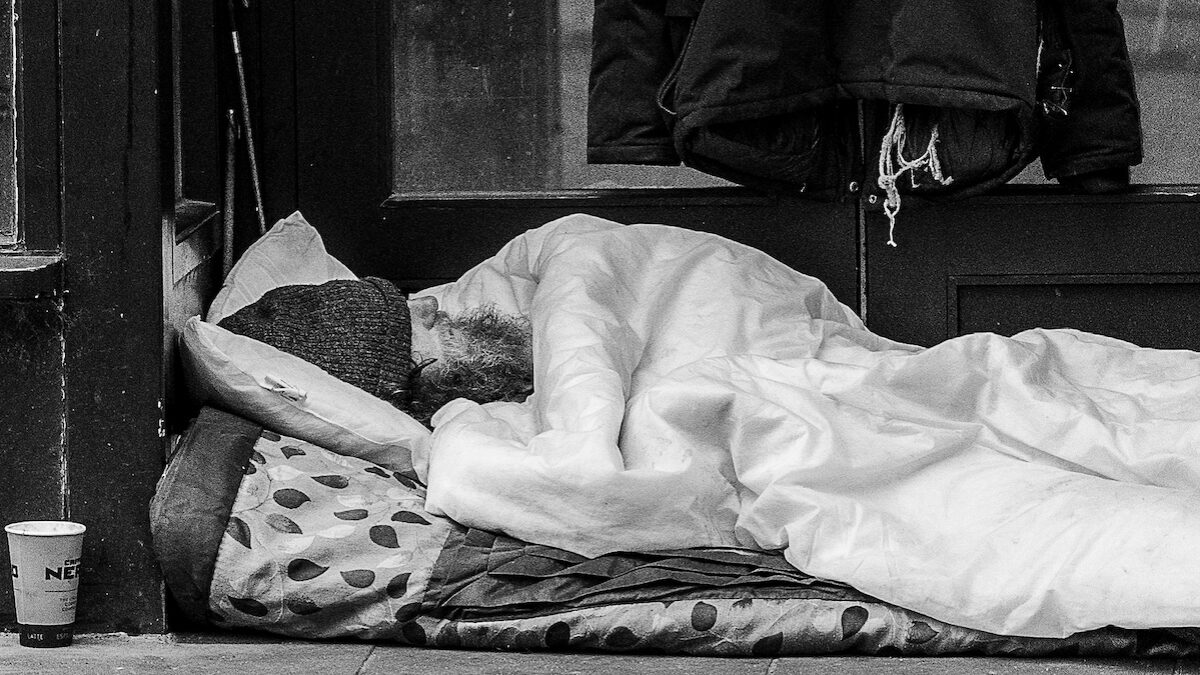California’s Democrat legislators are trying to make discrimination legal again. A bill called ACA7 seeks to go around the state’s constitutional ban on affirmative action and legalize discrimination. The state Assembly has passed the bill, and it is under consideration in the state Senate.
California’s voters passed Proposition 209 in 1996 with an overwhelming majority. The proposition banned affirmative action in the state’s Constitution and mandated that California “shall not discriminate against, or grant preferential treatment to, any individual or group based on race, sex, color, ethnicity, or national origin in the operation of public employment, public education, or public contracting.”
Less Discrimination, More Success
Democrats predicted that Prop 209 would have detrimental effects on the minorities in the state. They thought that without racial preference in college admissions, minority students’ enrollment at the University of California (UC) system would drop significantly.
The Democrats’ fearmongering didn’t come true. Research by Charles L. Geshekter, an emeritus professor of history at California State University-Chico, shows that since Prop 209’s passage, minority students’ enrollment in the UC system has increased, and their graduation rates have also improved. Geshekter credited the ban on racial preferences in college admissions with leading to a redistribution of minority students among UC campuses. More of them achieved better academic outcomes when they attended a college that “offered an apparently better match for their academic backgrounds and preparation.”
Even the Los Angeles Times had to admit that UC’s student body is more racially diverse today. For example, UC’s 2020 freshman class was composed of 36 percent Hispanics, 35 percent Asians, 5 percent blacks, and 21 percent whites. Additionally, “about 44% of admitted students were low-income, while 45% were the first in their families to attend a four-year university.”
Voters Reject Racial Discrimination (Again)
California’s Democrats and their allies, however, never let inconvenient truths stand in the way. They insisted (without proof) that Prop 209 was a barrier to remedying the state’s systemic racism and tried to overturn Prop 209 through Prop 16 in 2020.
The “Yes on 16” campaign had the support of Democrat Gov. Gavin Newsom, tech billionaires in Silicon Valley, corporate media, and leftist organizations in the state. They demonized the “No on Prop 16” campaign as a white supremacist effort, though racially diverse groups, including Asians and African Americans, supported the “No” campaign. The “Yes” campaign also outspent the “No” campaign 14 to 1. Still, California voters rejected Prop 16 decisively.
Prop 16’s defeat was not an outlier. In 2019, voters in Washington, another blue state, defeated their Democrat-controlled legislature’s attempt to repeal the state’s decade-long ban on affirmative action. Additionally, Pew Research finds that “74 percent [of Americans] think race and ethnicity should not be considered in admissions decisions. For gender, 82 percent think it shouldn’t be considered. The results extend to every racial group and to Democrats as well as Republicans.”
California’s Democrat legislators should have accepted defeat graciously, respected voters’ wishes, and shifted their energy and resources to other pressing issues. Instead, they couldn’t take “no” for an answer. They chose to try to repeal Prop 209 again.
Another Effort to Repeal Prop 209
Last February, Assemblyman Corey A. Jackson, D-Perris, introduced Assembly Constitution Amendment 7, or “ACA7.” The bill would amend Prop 209 by authorizing the governor of California “to issue waivers to public entities that wish to use state funds for evidence-based or research-informed and culturally specific programs to increase life expectancy, improve educational outcomes, and lift specific ethnic groups and marginalized genders out of poverty.”
Clearly, ACA7 is a sly attempt to gut Prop 209 and make discrimination legal again in California. No wonder supporters referred to ACA7 as a “skinnier” affirmative-action measure.
Fellow Assemblyman Bill Essayli, R-Corona, voiced his objection to ACA7. He stated, “We need to be treating each other equally, with dignity and respect, and stop the division.” In response, Jackson referred to Essayli, the first Muslim member of the California Assembly, as a “white supremacist.”
Earlier this year, the California Reparations Task Force, a committee created by legislation and backed by Newsom, gave ACA7 a boost. The committee included the repeal of Prop 209 as one of its recommendations to the California Legislature in May 2023.
SCOTUS Inspires Opposition to DEI
But a month later, the U.S. Supreme Court ruled that Harvard University and the University of North Carolina’s race-based college admissions were unconstitutional, violating the 14th Amendment’s equal protection clause. The ruling effectively bans affirmative action.
Justice Clarence Thomas wrote, “The color of a person’s skin is irrelevant to that individual’s equal status as a citizen of this nation. To treat him differently on the basis of such a legally irrelevant trait is, therefore, a deviation from the equality principle and a constitutional injury. All racial stereotypes harm and demean individuals.”
A Gallup poll found that 68 percent of U.S. adults, including 63 percent of Asians, 68 percent of Hispanics, and 52 percent of black respondents, support the Supreme Court’s decision.
Since the court’s ruling, many state legislatures have considered bills restricting so-called diversity, equity, and inclusion (DEI) programs at public colleges and universities. Five states — Florida, North Carolina, South Dakota, Tennessee, and Texas — passed legislation to ban some DEI programs, such as affirmative action in hiring and admissions, from their higher education institutions. Some American corporations have also begun to reevaluate their DEI initiatives. They have learned that these initiatives have reinforced stereotypes, worsened the division of the workforce, and failed to create an inclusive workplace. Tech giants such as Google and Meta have made cuts to their DEI initiatives and laid off DEI-focused employees.
Jackson and his Democrat colleagues in the California Legislature should have dropped ACA7 into a recycle bin and focused on other issues voters prioritize, such as drug overdose deaths, rampant crime, a growing homeless population, unaffordable energy and housing, and the rising cost of doing business in the state. Instead, Democrats doubled down and passed the bill in the California Assembly last September. ACA7 has now advanced to the Senate. If the Senate approves it by June 2024, ACA7 will appear on the state ballot in November this year, and Californians must vote again on the same issue they rejected merely four years ago.
‘No on ACA7’
Gail Heriot, a commissioner on the U.S. Commission on Civil Rights and a law professor at the University of San Diego, is a proponent of Prop 209. She believes that “Proposition 209 says something fundamental — that our laws should not discriminate on the basis of race, ethnicity, or sex. It’s not a matter of which groups get the benefit and which bear the burden. It’s a matter of principle.”
Heriot has launched a “No on ACA7” petition at Change.org. Anyone, including non-California residents, can sign it. Heriot hopes to collect at least 26,000 signatures by next month and send a powerful message to the Senate: ACA7 is a bad idea, and senators should respect voters’ wishes by not moving the bill forward. “In a state as diverse as California, it is all the more important that the government be prohibited from engaging in preferential treatment,” Heriot said.
Since bad ideas that originate in California tend to spread to the rest of the country, any American who believes that “all men are created equal” ought to sign the “No on ACA7” petition. Let California legislators know that racial discrimination in any shape or form is wrong and nothing can justify it.









